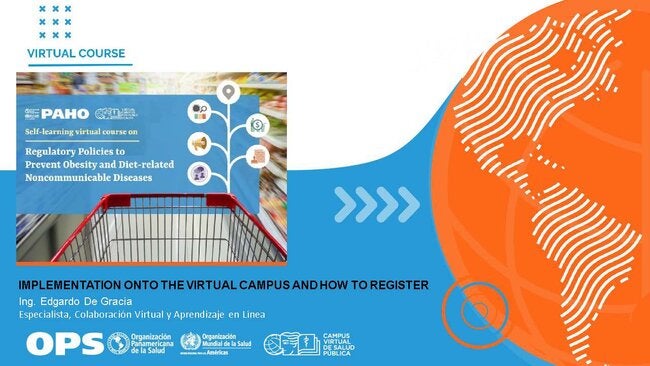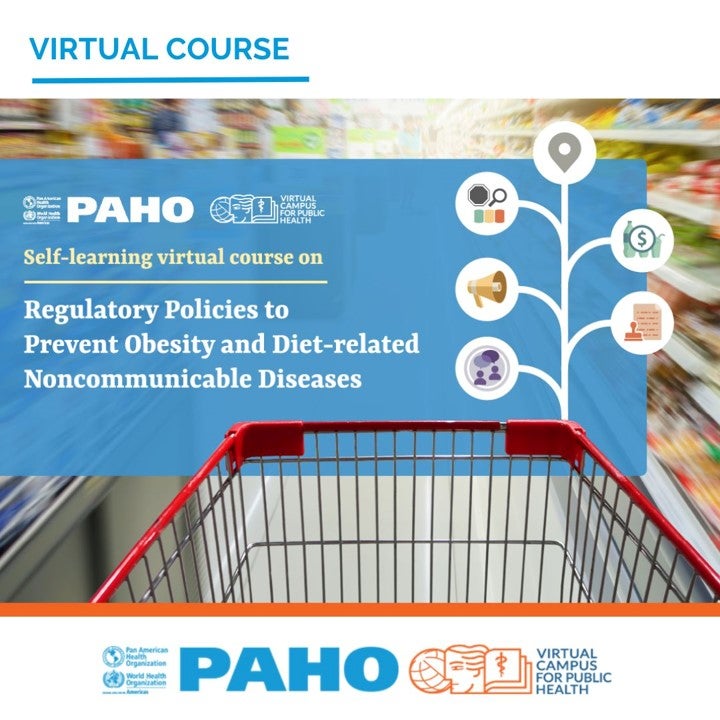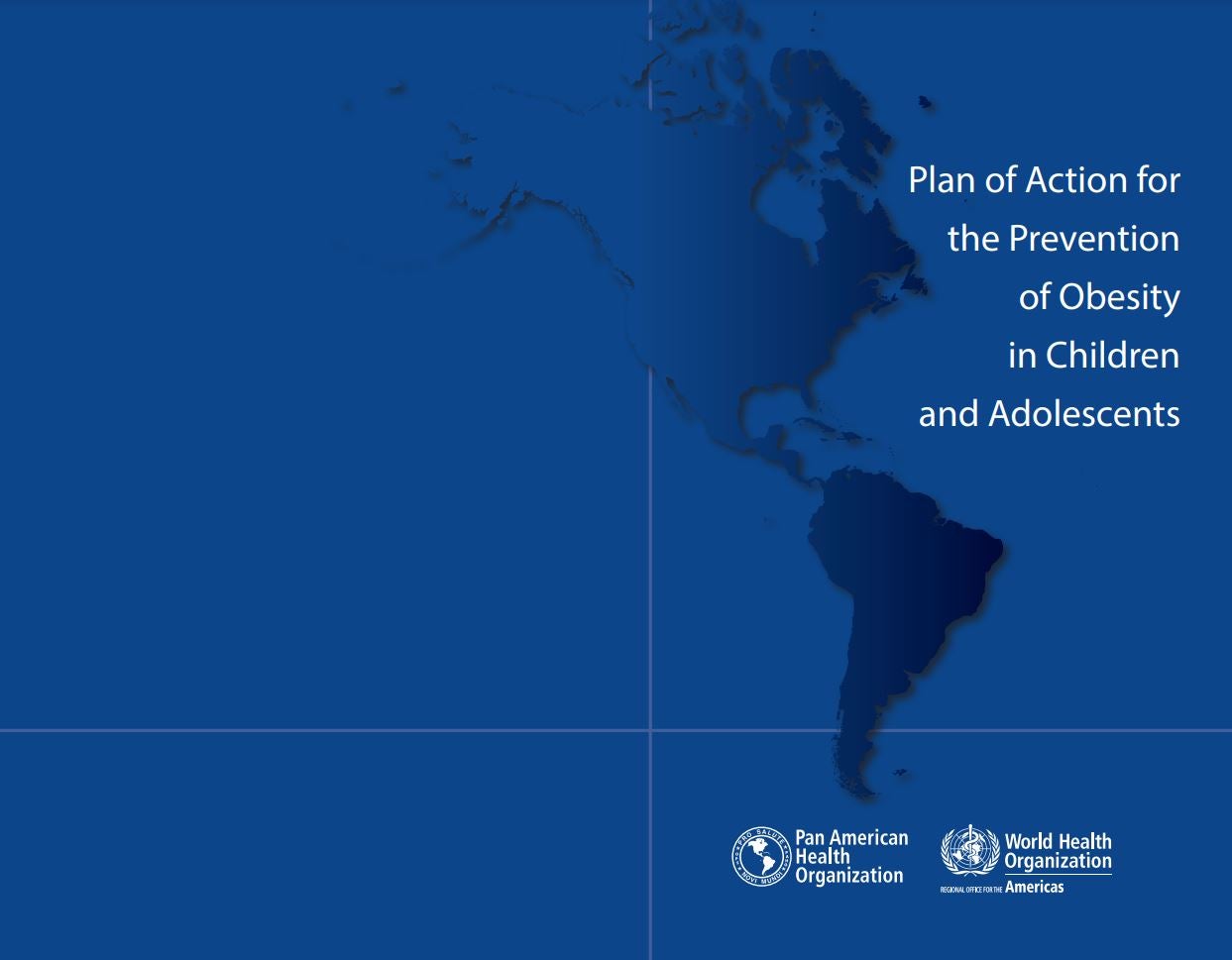
Join us on Tuesday, June 4, 2024, at 10:00 a.m. (Washington DC, or EDT) for the launch event for the self-learning virtual course on Regulatory Policies to Prevent Obesity and Diet-related Noncommunicable Diseases. In this course, participants will gain access to strategies for designing and advancing regulatory policies that reduce the demand and offer of ultra-processed and processed products and can halt the rise of obesity and diet-related non-communicable diseases (NCDs).
This webinar is intended for Member States’ government officials and policymakers responsible for designing and implementing food policies in the Region of the Americas; public health professionals and advocates supporting regulatory policies to prevent obesity and diet-related NCDs, such as researchers, academia, and practitioners; civil society organization representatives; and PAHO personnel.
Presentation on the implementation and how to register for the virtual campus course
How to participate
- DATE: Tuesday, June 4, 2024
- TIME: from 10:00 A.M. to 12:30 P.M. (EDT or Washington D.C. time) [check the local time in other cities at the end of this page]
- LANGUAGES: English, Spanish, and Portuguese with simultaneous translation.
- REGISTRATION: https://paho-org.zoom.us/webinar/register/WN_xhImYTJ6Rji_LZPxGPVOlg#/registration
Objectives of the webinar
- Launch and disseminate the self-learning virtual course on Regulatory Policies to Prevent Obesity and Diet-related NCDs within the Region.
- Explain the course purpose, design, modality, duration, and how to register.
- Share how the course content can be applied by professionals and advocates working in various sectors (e.g. policymakers, academics, and civil society organizations).
Context
Countries in the Region of the Americas have been facing an increase in obesity and NCDs associated with high mortality and morbidity rates. Multiple factors, such as social and economic determinants, including the operation of oligopolized manufacturing sectors promoting products and practices that are major drivers of unhealthy food systems and eating practices worldwide are contributors to the rising epidemic of obesity and NCDs.
In addition, it has been demonstrated that the ultra-processed food and drink industry, micronutrients industry, pesticides and genetic food manipulation industry, and associated actors often operate to slow down, weaken, distort, and/or impede the development of effective food and nutrition policies and programs. This highlights the importance of building capacity in the prevention and management of conflict of interest as an integral part of developing effective governance for food and nutrition policies.
To advance the WHO’s and Regional nutrition agendas, PAHO is implementing a multi-module virtual course that focuses on effective regulatory policies that can help halt the rise in obesity and diet-related NCDs.
Time in other cities
- 7:00 a.m. – Los Angeles, Vancouver.
- 8:00 a.m. - Tegucigalpa, San Salvador, San Jose (CR), Mexico City, Managua, Guatemala City, Belmopan.
- 9:00 a.m. – Bogota, Panamá City, Kingston, Lima, Quito.
- 10:00 a.m. - Asunción, Bridgetown, Caracas, Georgetown, Havana, La Paz, Port of Spain, Port-au-Prince, Nassau, Ottawa, Santiago, San Juan, Santo Domingo, Washington D.C.
- 11:00 a.m. – Bridgetown, Caracas, Georgetown, Havana, La Paz, Port of Spain, Port-au-Prince, Nassau, Ottawa, Santiago, San Juan, Santo Domingo, Washington D.C.
- 3: 00 p.m. - London.
- 4:00 p.m. – Geneva, Madrid.
For other cities, check the local time in the following link.
Related Links
Plan of Action for the Prevention of Obesity in Children and Adolescents.
Among other measures, the plan calls for the implementation of fiscal policies, such as taxes on sugar-sweetened beverages and energy-dense nutrient-poor products, regulation of food marketing and labeling, improvement of school nutrition and physical activity environments, and promotion of breastfeeding and healthy eating.



